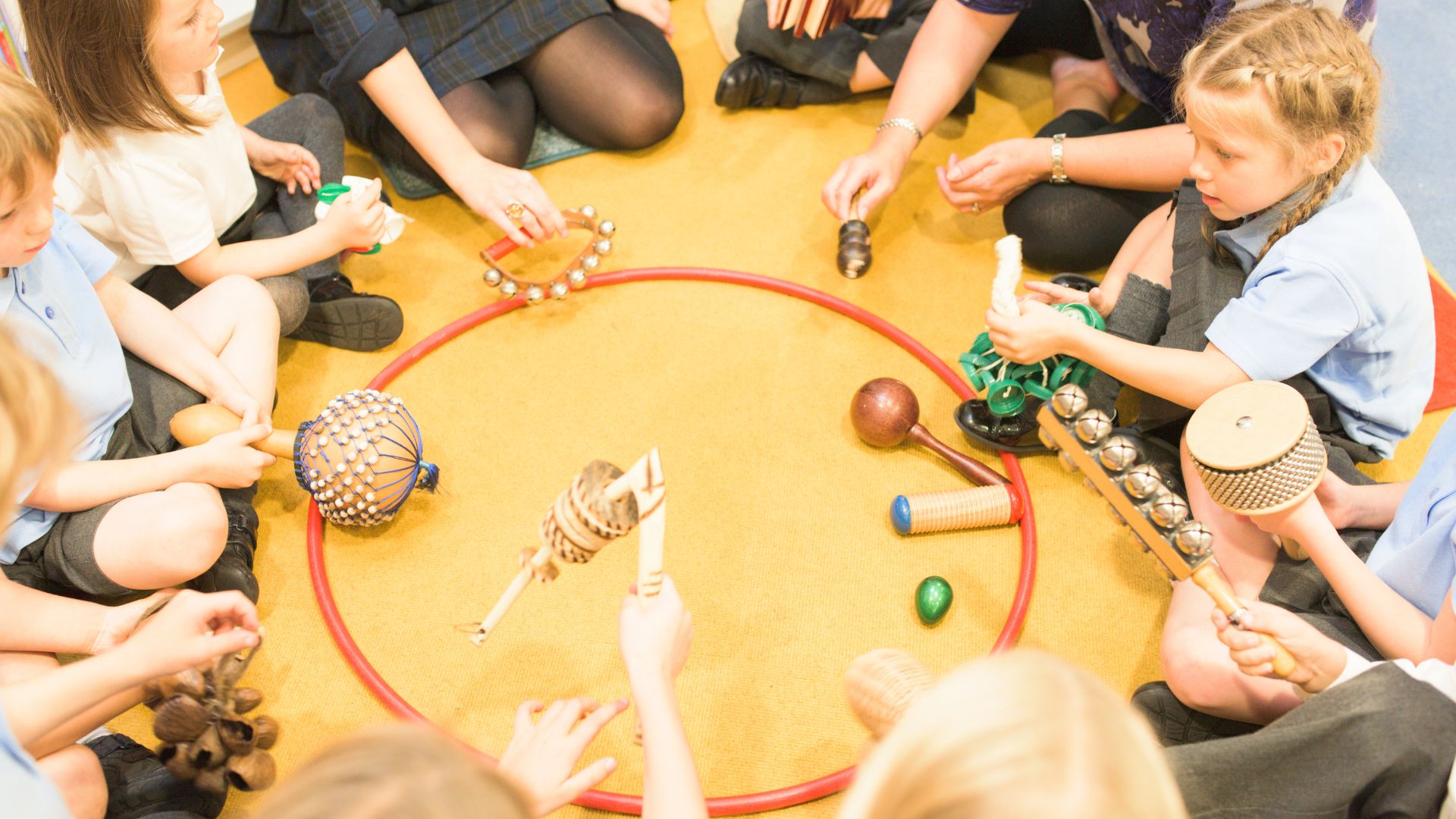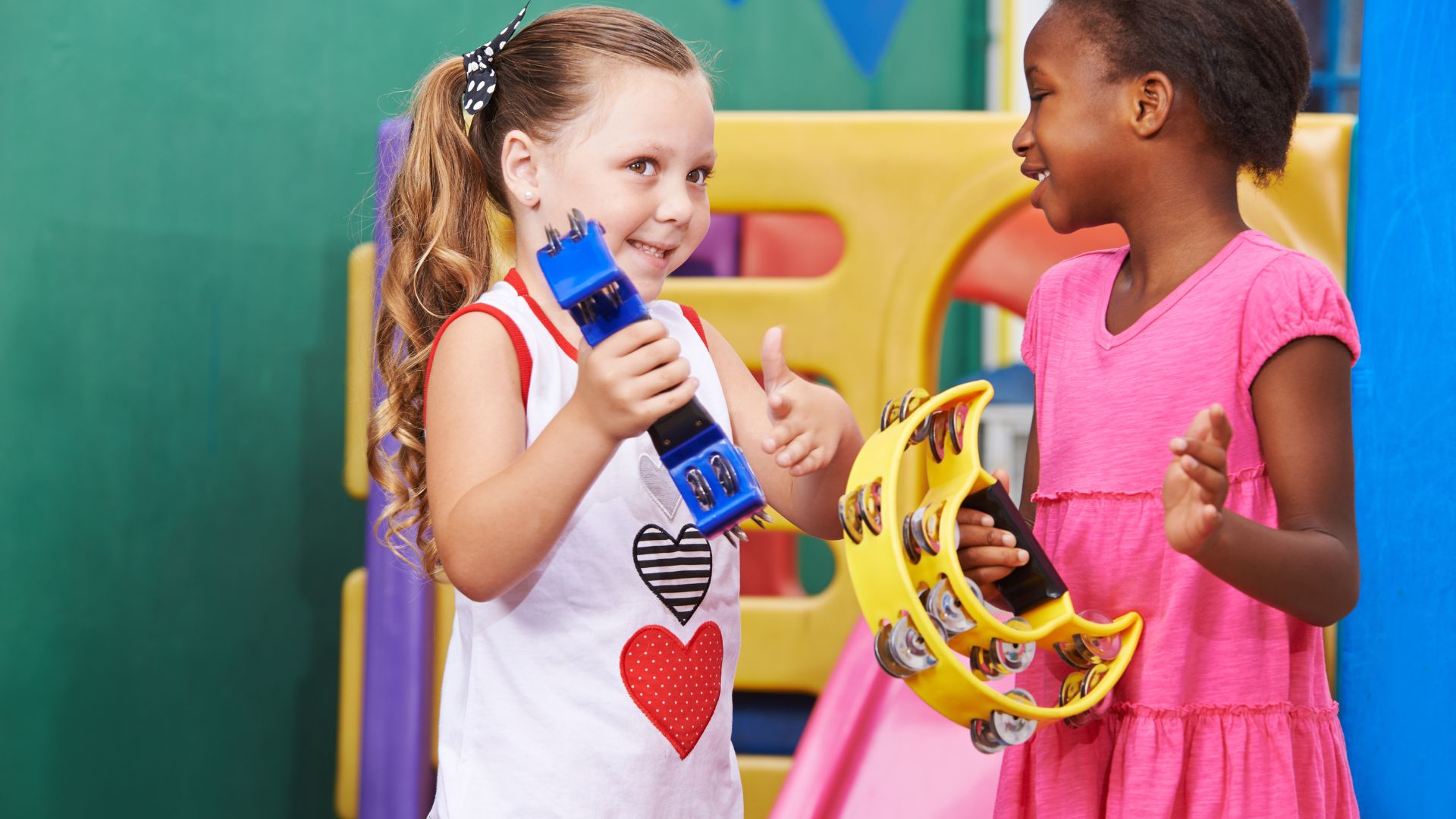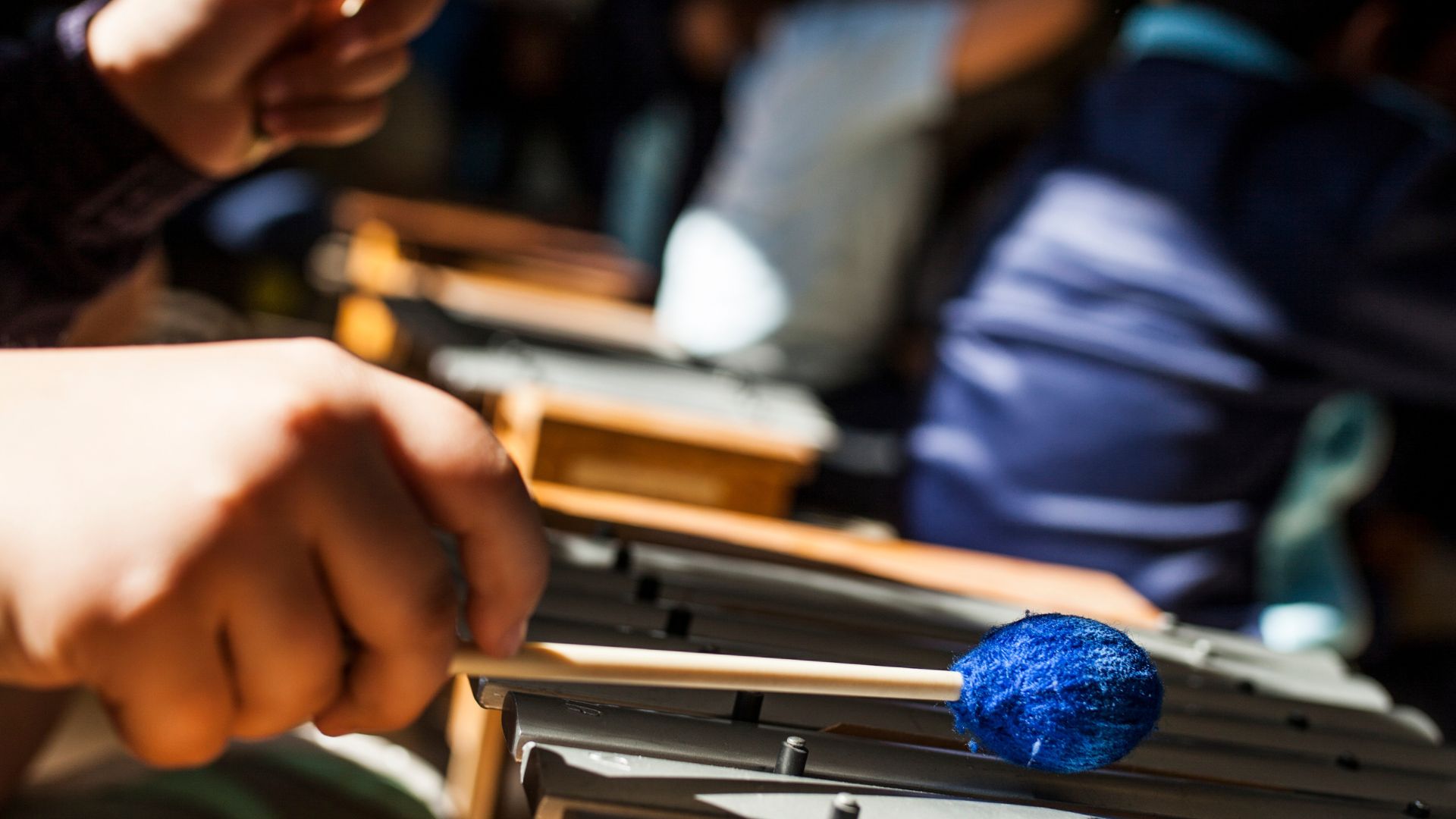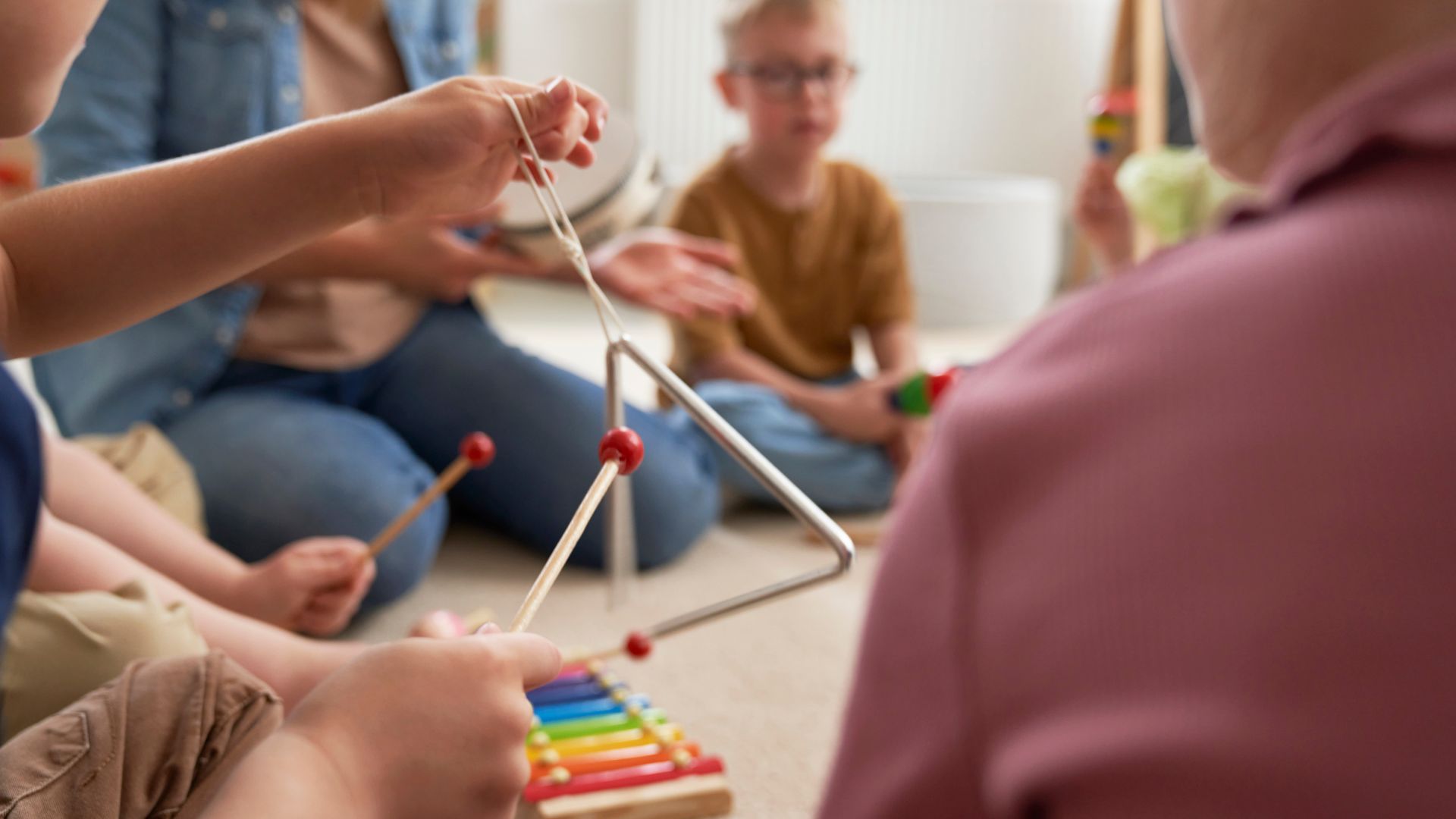Key learnings from this article:
- Music has heart and purpose implicitly, but it also supports learning across the curriculum when taught as an isolated subject, and integrated across all teaching.
- The interconnected nature of music, structure of notation and careful listening skills mimic those required in maths. Research shows that regular music teaching improves high level mathematical skills
- The speaking, listening and comprehension skills acquired as part of a musical education bolster and develop the skills involved in early literacy.
- Investigation, classification and comparison are frequent skills used as learners explore the world of music. These skills are also required for a robust scientific education - practising them in both arenas supports a holistic approach to learning.
Music is a product of, and a medium for, creativity. As long as humans have existed in community, so has song, verse and tune. Music both reflects the human experience, and gives us a way to express ourselves that goes beyond simple communication. It doesn’t take much to convince a person that a favourite song brings back memories, a shared song of worship can bring people to tears, and an artist loved across the world for eras can bring people from across the globe into an amphitheatre!
Music matters. Of course it does. Yet in the traditional school day, a big heap of other things matter too. Phonics checks, SATS, maths assessments, reporting - the list goes on.
When so many things matter in primary education, music is frequently put to the back of the queue. Understandably so, when measurable data, school expectations and (often) a dearth in specific musical training exists. We believe, however, that music has an incredibly important role in connecting all subjects together, deserving its own specific place in the curriculum to honour it.
In this article, we’ll be sharing with you the myriad of ways music education can positively benefit core curriculum subjects when taught both explicitly as a lesson, and embedded throughout all teaching. We’re focusing on Key Stage 1 and Key Stage 2, and we’ll break down how music can positively impact key curriculum concepts.
Maths
What the national curriculum says:
Mathematics is an interconnected subject in which pupils need to be able to move fluently between representations of mathematical ideas. The programmes of study are, by necessity, organised into apparently distinct domains, but pupils should make rich connections across mathematical ideas to develop fluency, mathematical reasoning and competence in solving increasingly sophisticated problems.
How music helps:
When thinking musically we move repeatedly through different concepts all at once. For more fluent musicians, we’re moving through reading notation, adapting tempo, all while physically moving our bodies in a variety of ways depending on our instrument.
For budding learners we’re exploring new concepts, and recognising how different genres speak in their own languages that are similar to one another but have their own distinctions. Just as mathematical ideas have ‘varied representations’ connecting into ‘distinct domains’, music takes various forms that have their own flavour yet maintain connections. Just as learners get to grips with their musical side, developing their fluency and sophistication as they go, so do budding mathematicians.
Why are we outlining these connections?
We want to make it clear that as you strengthen your musical muscles, those same muscles get built up to tackle mathematical problems.
The research backs this concept up. Holmes and Hallam (2017) found that ‘music has an impact on spatial-temporal skills’... ‘considered to be high-level mathematical abilities’.
Equally a recent meta-analysis (Akin, 2022) found that music-based interventions significantly improved mathematical ability. As the mind explores how a regular beat of a drum overlaps the twang of a guitar, how differently structured instruments produce different sounds and how all this can be represented in a sheet of notes, neural pathways are made - and mathematical thinking follows.
English
What the national curriculum says:
English has a pre-eminent place in education and in society. A high-quality education in English will teach pupils to speak and write fluently so that they can communicate their ideas and emotions to others, and through their reading and listening, others can communicate with them. Through reading in particular, pupils have a chance to develop culturally, emotionally, intellectually, socially and spiritually. Literature, especially, plays a key role in such development.
Reading also enables pupils both to acquire knowledge and to build on what they already know. All the skills of language are essential to participating fully as a member of society; pupils who do not learn to speak, read and write fluently and confidently are effectively disenfranchised.
How music helps:
English and Literacy as subjects encompass a wide range of skills, but at their core is a focus on an ability to communicate ideas, while understanding the context in which they have come to be.
English gives students the tools to take on information of all genres, using this information to develop their personhood. It’s about pouring in, taking in, and pouring back out into the world. To us, this sounds very similar indeed to the process of musical development. We explore the wonder that other musicians have put out into the world through their craft. We learn how to understand and negotiate that craft, and we work on pouring out our own contribution back into wider society.
Just as the pathways learners make in music are followed along in mathematical thinking, the processes of learning to communicate in English beautifully complement the process of learning and exploring music.
Let’s delve deeper. Speaking and listening are vital components of learning to read and to write. Children listen closely to spoken words in their early phonics education, listening carefully for individual phonemes, then transcribing them in order to write. The reverse happens when learning to read: children segment the graphemes in a word, knowing the phonemes they correspond to, blending them together and eventually reading out loud.
There are obvious connections here with musical notation, but this is just a small aspect of the wider skill of speaking and listening. Carefully listening to music, exploring what instruments are heard, the beats involved, and most wonderfully, how this makes a person feel, is incredible practice for the wider skill of literacy. Arguably, children may be able to reflect on how music affects them personally far earlier than they will be able to develop higher level comprehension skills in literacy. Practising this skill of musical comprehension, then, can only positively impact this later skill set.
As children progress further through their education, these connections continue. Developed notation reading marries with more advanced reading and writing. An ability to reflect on and enjoy varied genres of texts matches an appreciation for and understanding of music.
Science
What the national curriculum says:
Key Stage 1: [Pupils] should be encouraged to be curious and ask questions about what they notice. They should be helped to develop their understanding of scientific ideas by using different types of scientific enquiry to answer their own questions, including observing changes over a period of time, noticing patterns, grouping and classifying things, carrying out simple comparative tests, and finding things out using secondary sources of information.
Lower Key Stage 2: [Pupils should begin] to develop their ideas about functions, relationships and interactions
Upper Key Stage 2: [Pupils should work on] practical scientific methods, processes and skills.
How music helps:
At the core of the national curriculum for science is curiosity and enquiry. Children are capable of, and should, explore the world around them with wonder. As budding scientists, they should apply this curiosity in a quantifiable way, observing, classifying, grouping and performing tests. As they get older, these tests become increasingly complex and stratified. As with English and maths, much of these skills and processes are found in, and bolstered by, a musical education.
As learners explore new musical instruments, notation and styles, they learn to enquire about how these new learnings have similarities to the old. They explore how the shake of a maraca differs from the tap of a bongo, but recognise the similar rhythm and beat they can create with these different instruments. They explore that pitch can change with their voices just as much as it can with piano keys, and that there are specific ways to measure and adjust both.
The processes involved in exploring music are those of an investigator as much as they are of an artist. Developing an enquiring and engaged mind through music can only support the scientific reasoning skills needed throughout the science curriculum!
Let’s keep the curriculum connected!
School values are often focused around providing for children as holistic individuals, recognising that no area of learning can truly happen in isolation. Subjects connect, just as all areas of life intersect - and music is a beautiful, creative example of this.
Recognising the links that a subject like music can offer to draw the rest of your curriculum together is a vital part of ensuring your learners prosper, but we know this can be a challenge. With specialist music teachers a precious resource that are hard to find, and time to plan great music lessons limited, we hope to provide an answer. The Ear Academy offers carefully designed music lesson plans, continuous professional development and CPD training courses to save time while putting music back at the heart of learning.

.jpg)






